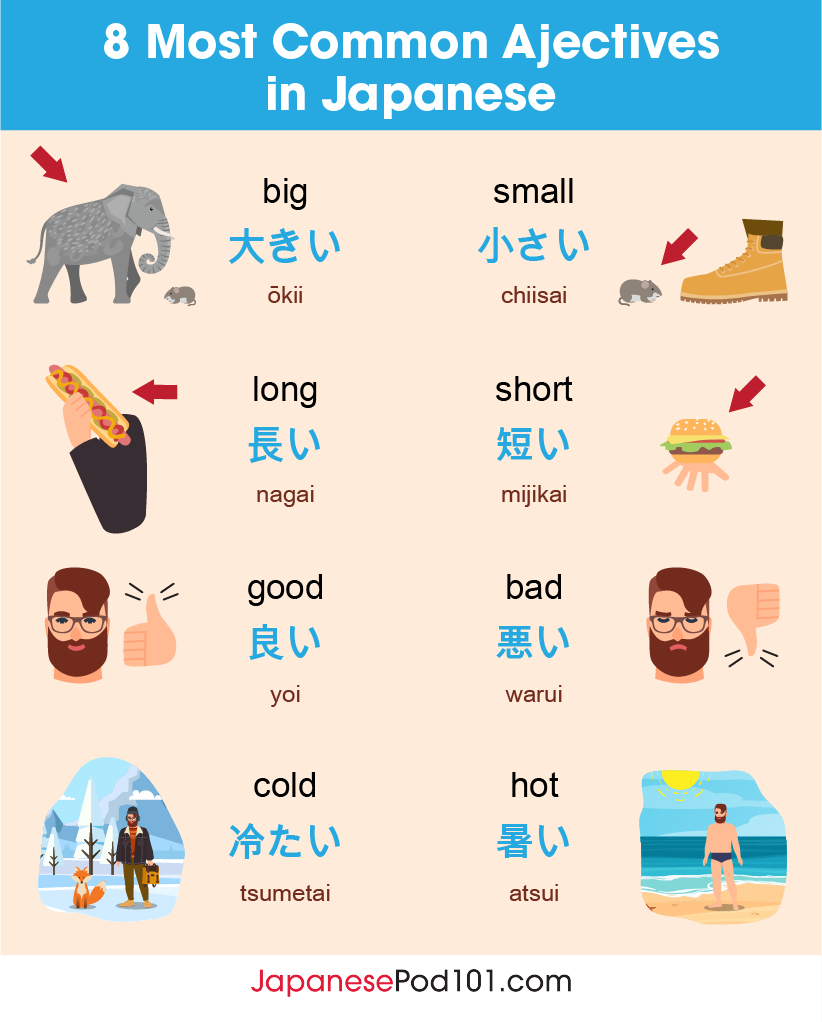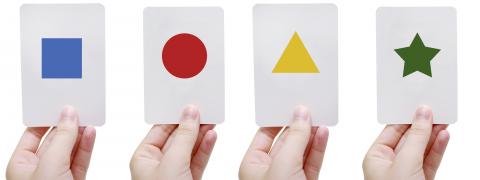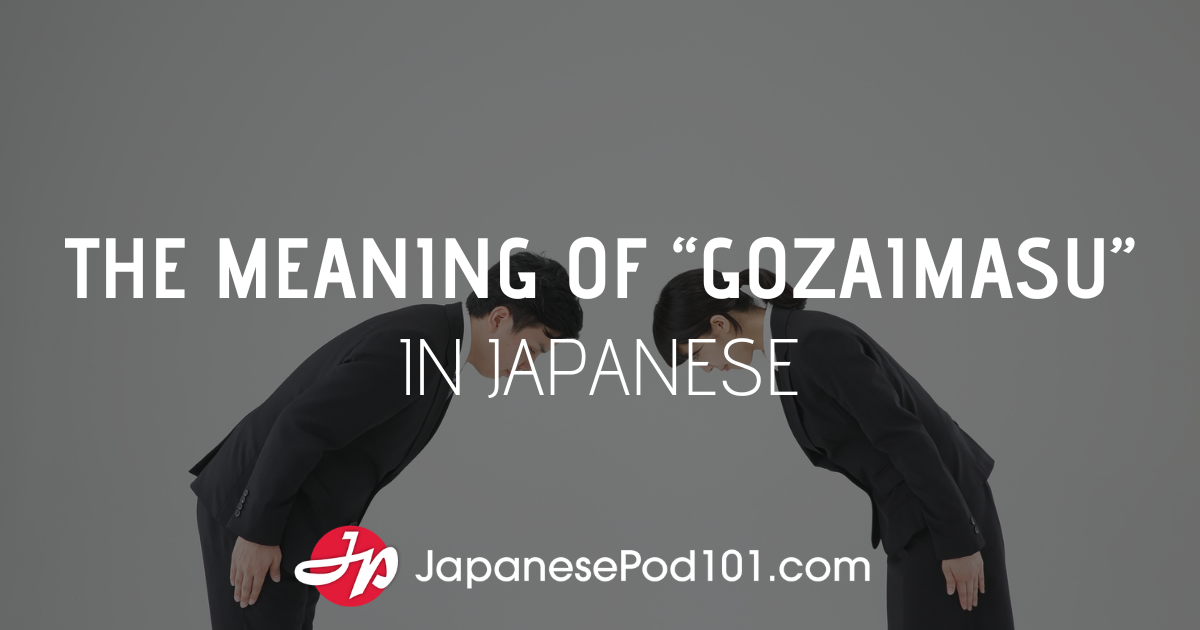Do you realize how many adjectives you use when you describe or express something, such as feeling, personality, weather conditions, and the size and color of things? Adjectives in Japanese are various and rich in expression, so learning the top 100 Japanese adjectives will greatly improve your conversation skills in Japanese!
It’s not very difficult to learn Japanese adjectives rules, as they work in mostly the same way as they do in English grammar. Before we move onto our list, though, it’s prudent to go over Japanese adjectives rules to give you context.
So first things first: Where do Japanese adjectives go?
For example, a Japanese adjective is placed before a noun: 親切な人 (shinsetsu na hito), meaning “kind person.” Or they can follow the noun + be verb + adjective pattern: 外は寒い (soto wa samui), meaning “outside is cold.”
Most Japanese adjectives end with the sound of either Hiragana い (i) or な (na), unless it’s not in past form. An adjective consists of a stem, such as 親切 (shinsetsu), which never changes, and a suffix, such as な (na), which can change.
Ready to expand your Japanese adjectives vocabulary? You’ll enjoy speaking Japanese a lot more once you know the variety of Japanese adjectives! Here’s our top 100 Japanese adjectives list at JapanesePod101.com!
Table of Contents
- Describing Dimension, Size, Distance & Number
- Describing Value
- Describing Sense
- Japanese Adjectives for Personality & Feelings
- Describing Speed, Difficulty, Importance, etc.
- Describing Colors
- Describing Shapes
- Describing Weather
- Japanese Adjectives for Food: Describing Taste
- Describing Situations
- Describing Physical Traits or Physical Conditions
- Describing Appearance and Condition
- Conclusion: How JapanesePod101 Can Help You Learn More Japanese
1. Describing Dimension, Size, Distance & Number
1- Vocabulary
| Reading | Kanji | Hiragana | English | |
|---|---|---|---|---|
| 1 | ōkii | 大きい | おおきい | big |
| 2 | chiisai | 小さい | ちいさい | small |
| 3 | hiroi | 広い | ひろい | wide |
| 4 | semai | 狭い | せまい | narrow |
| 5 | takai | 高い | たかい | tall |
| 6 | hikui | 低い | ひくい | short; low |
| 7 | omoi | 重い | おもい | heavy |
| 8 | karui | 軽い | かるい | light |
| 9 | chikai | 近い | ちかい | close |
| 10 | tōi | 遠い | とおい | far |
| 11 | ōi | 多い | おおい | many |
| 12 | sukunai | 少ない | すくない | few |
2- Example Sentences
-
- 部屋に大きいベッドと小さい椅子があります。
Heya ni ōkii beddo to chiisai isu ga arimasu.
There is a big bed and a small chair in the room.
- 部屋に大きいベッドと小さい椅子があります。
-
- このカバンは重いです。
Kono kaban wa omoi desu.
This bag is heavy.
- このカバンは重いです。
-
- 駅はここから遠いです。
Eki wa koko kara tōi desu.
The station is far from here.
- 駅はここから遠いです。
- あそこに高いビルがあります。
Asoko ni takai biru ga arimasu.
There is a tall building there.
2. Describing Value
1- Vocabulary
| Reading | Kanji | Hiragana | English | |
|---|---|---|---|---|
| 13 | yoi | 良い | よい | good |
| 14 | warui | 悪い | わるい | bad |
| 15 | subarashii | 素晴らしい | すばらしい | great |
| 16 | hidoi | ひどい | ひどい | awful; terrible |
| 17 | utsukushii | 美しい | うつくしい | beautiful |
| 18 | minikui | 醜い | みにくい | ugly |
| 19 | kōka na | 高価な | こうかな | expensive |
| 20 | yasui | 安い | やすい | cheap |
2- Example Sentences
-
- 私はテストで良い結果を出した。
Watashi wa tesuto de yoi kekka wo dashita.
I got a good result on the test.
- 私はテストで良い結果を出した。
-
- そこから素晴らしい眺めが見えます。
Soko kara subarashii nagame ga miemasu.
You can see a great view from there.
- そこから素晴らしい眺めが見えます。
-
- あの女性はとても美しいです。
Ano josei wa totemo utsukushii desu.
That lady is very beautiful.
- あの女性はとても美しいです。
- この安いカメラはすぐに壊れました。
Kono yasui kamera wa sugu ni kowaremashita.
This cheap camera broke instantly.
3. Describing Sense
1- Vocabulary
| Reading | Kanji | Hiragana | English | |
|---|---|---|---|---|
| 21 | yawarakai | 柔らかい | やわらかい | soft |
| 22 | katai | 硬い・固い | かたい | hard |
| 23 | tsuyoi | 強い | つよい | strong |
| 24 | yowai | 弱い | よわい | weak |
| 25 | nameraka na | 滑らかな | なめらかな | smooth |
| 26 | arai | 荒い | あらい | rough |
| 27 | fukuzatsu na | 複雑な | ふくざつな | complicated |
2- Example Sentences
-
- この西陣織は柔らかい素材です。
Kono Nishijin-ori wa yawarakai sozai desu.
This Nishijin-ori is soft material.
- この西陣織は柔らかい素材です。
-
- 彼女は強い男性が好きです。
Kanojo wa tsuyoi dansei ga suki desu.
She likes strong men.
- 彼女は強い男性が好きです。
-
- ダイヤモンドは硬い石です。
Daiyamondo wa katai ishi desu.
Diamond is a hard stone.
- ダイヤモンドは硬い石です。
- その問題は複雑です。
Sono mondai wa fukuzatsu desu.
The problem is complicated.
4. Japanese Adjectives for Personality & Feelings
Looking for Japanese adjectives to describe a person? Here are the best Japanese adjectives to describe someone’s personality or feelings.
1- Vocabulary
| Reading | Kanji | Hiragana | English | |
|---|---|---|---|---|
| 28 | omoshiroi | 面白い | おもしろい | funny; interesting |
| 29 | shitashimiyasui | 親しみやすい | したしみやすい | friendly |
| 30 | otonashii | 大人しい | おとなしい | quiet |
| 31 | ganko na | 頑固な | がんこな | stubborn |
| 32 | yasashii | 優しい | やさしい | amiable; thoughtful |
| 33 | ureshii | 嬉しい | うれしい | happy |
| 34 | kanashii | 悲しい | かなしい | sad |
| 35 | shakōteki na | 社交的な | しゃこうてきな | sociable |
| 36 | kodoku na | 孤独な | こどくな | lonely |
| 37 | okotta | 怒った | おこった | angry |
Also visit “Which Adjective Describes Your Personality Best?” to check Japanese pronunciation, and see some more related vocabulary.
2- Example Sentences
-
- 彼女は頑固な人です。
Kanojo wa ganko na hito desu.
She is a stubborn person.
- 彼女は頑固な人です。
-
- 私は面白い人が大好きです。
Watashi wa omoshiroi hito ga daisuki desu.
I really like a funny person.
- 私は面白い人が大好きです。
-
- 試験に合格したので嬉しいです。
Shiken ni gōkaku shita node ureshii desu.
I am happy because I passed the exam.
- 試験に合格したので嬉しいです。
- 彼は社交的な学生です。
Kare wa shakōteki na gakusei desu.
He is a sociable student.
To learn more about Personalities and Feelings, please read this article.
5. Describing Speed, Difficulty, Importance, etc.
1- Vocabulary
| Reading | Kanji | Hiragana | English | |
|---|---|---|---|---|
| 38 | hayai | 速い | はやい | fast |
| 39 | osoi | 遅い | おそい | slow |
| 40 | kantan na | 簡単な | かんたんな | easy |
| 41 | muzukashii | 難しい | むずかしい | difficult |
| 42 | jyūyō na | 重要な | じゅうような | important |
| 43 | atarashii | 新しい | あたらしい | new |
| 44 | furui | 古い | ふるい | old |
| 45 | majime na | 真面目な | まじめな | serious |
2- Example Sentences
-
- インターネットが遅いのでビデオ電話ができません。
Intānetto ga osoi node bideo-denwa ga dekimasen.
I can’t make a video-call because the internet is slow.
- インターネットが遅いのでビデオ電話ができません。
-
- これは簡単な問題です。
Kore wa kantan na mondai desu.
This is an easy problem.
- これは簡単な問題です。
-
- 私は新しい携帯電話が欲しいです。
Watashi wa atarashii keitai denwa ga hoshii desu.
I want a new mobile phone.
- 私は新しい携帯電話が欲しいです。
- 彼は真面目な会議で笑い出しました。
Kare wa majime na kaigi de waraidashimashita.
He started laughing at a serious meeting.
6. Describing Colors
1- Vocabulary
“Color” is iro in Japanese.
| Reading | Kanji | Hiragana | English | |
|---|---|---|---|---|
| 46 | akai | 赤い | あかい | red |
| 47 | aoi | 青い | あおい | blue |
| 48 | midori no | 緑の | みどりの | green |
| 49 | kiiroi | 黄色い | きいろい | yellow |
| 50 | kuroi | 黒い | くろい | black |
| 51 | shiroi | 白い | しろい | white |
| 52 | kurai | 暗い | くらい | dark |
| 53 | akarui | 明るい | あかるい | light; bright |
| 54 | azayaka na | 鮮やかな | あざやかな | vivid |
| 55 | bon’yari shita | − | ぼんやりした | dull |
2- Example Sentences
-
- りんごは赤い種類と緑の種類があります。
Ringo wa akai shurui to midori no shurui ga arimasu.
Apples have a red kind and a green kind.
- りんごは赤い種類と緑の種類があります。
-
- 白いライオンを見たことがありますか。
Shiroi raion o mita koto ga arimasu ka.
Have you seen white lions?
- 白いライオンを見たことがありますか。
-
- 私は暗い色の服が好きです。
Watashi wa kurai iro no fuku ga suki desu.
I like clothes with dark colors.
- 私は暗い色の服が好きです。
- その浴衣は鮮やかな色が特徴です。
Sono yukata wa azayaka na iro ga tokuchō desu.
That Yukata is characterized by vivid colors.
7. Describing Shapes
1- Vocabulary
“Shape” is katachi in Japanese.
| Reading | Kanji | Hiragana | English | |
|---|---|---|---|---|
| 56 | marui | 丸い・円い | まるい | round |
| 57 | shikakui | 四角い | しかくい | square |
| 58 | sankaku no | 三角の | さんかくの | triangular |
| 59 | chōhōkei no | 長方形の | ちょうほうけいの | rectangular |
| 60 | kyūtai no | 球体の | きゅうたいの | spherical |
| 61 | rippōtai no | 立方体の | りっぽうたいの | cubic |
2- Example Sentences
-
- その丸い鏡を見てください。
Sono marui kagami o mite kudasai.
Please look at the round mirror.
- その丸い鏡を見てください。
-
- ゴミはあの四角い箱に入れてください。
Gomi wa ano shikakui hako ni irete kudasai.
Please put trash in that square garbage bin.
- ゴミはあの四角い箱に入れてください。
-
- 地球は球体の形をしています。
Chikyū wa kyūtai no katachi o shite imasu.
The earth has a spherical shape.
- 地球は球体の形をしています。
- この建築は立方体の形が有名です。
Kono kenchiku wa rippōtai no katachi ga yūmei desu.
This architecture is famous for its cubic shape.
8. Describing Weather
1- Vocabulary
| Reading | Kanji | Hiragana | English | |
|---|---|---|---|---|
| 62 | atsui | 暑い | あつい | hot |
| 63 | samui | 寒い | さむい | cold |
| 64 | mushimushi shita | 蒸し蒸しした | むしむしした | humid |
| 65 | atatakai | 暖かい | あたたかい | warm |
| 66 | hadazamui | 肌寒い | はだざむい | chilly |
Also, check out our lesson Learn the Top 15 Weather Conditions to learn how to express even more weather conditions in Japanese.
2- Example Sentences
-
- 今日は寒いので手袋を持って行ってください。
Kyō wa samui node tebukuro o motte itte kudasai.
Please take gloves with you because today is cold.
- 今日は寒いので手袋を持って行ってください。
-
- 夏は30度を超える暑い日が続きます。
Natsu wa 30-do o koeru atsui hi ga tsuzukimasu.
Hot days with over 30 degrees continue in summer.
- 夏は30度を超える暑い日が続きます。
-
- 春は暖かい気候で花見ができます。
Haru wa atatakai kikō de hanami ga dekimasu.
Spring has a warm climate, and flowers bloom.
- 春は暖かい気候で花見ができます。
- 昨日は肌寒い日でした。
Kinō wa hadazamui hi deshita.
Yesterday was chilly.
To learn more about weather, please visit our article all about Japanese Weather.
9. Japanese Adjectives for Food: Describing Taste
Here are the most common and important Japanese adjectives for describing food and taste!
1- Vocabulary
| Reading | Kanji | Hiragana | English | |
|---|---|---|---|---|
| 67 | amai | 甘い | あまい | sweet |
| 68 | shiokarai | 塩辛い | しおからい | salty |
| 69 | suppai | 酸っぱい | すっぱい | sour |
| 70 | nigai | 苦い | にがい | bitter |
| 71 | karai | 辛い | からい | spicy; hot |
| 72 | oishii | 美味しい | おいしい | delicious; tasty |
| 73 | mazui | 不味い | まずい | tastes bad |
2- Example Sentences
-
- 私は甘いものが大好きです。
Watashi wa amai mono ga daisuki desu.
I like sweets very much.
- 私は甘いものが大好きです。
-
- この梅干しは塩辛いので食べられません。
Kono umeboshi wa shiokarai node taberaremasen.
I can’t eat this Umeboshi because it’s salty.
- この梅干しは塩辛いので食べられません。
-
- 彼は苦いコーヒーが好きです。
Kare wa nigai kōhī ga suki desu.
He likes bitter coffee.
- 彼は苦いコーヒーが好きです。
- 明日は記念日なので美味しいものを食べたい。
Ashita wa kinenbi na node oishii mono o tabetai.
I want to eat something delicious because tomorrow is an anniversary.
10. Describing Situations
1- Vocabulary
| Reading | Kanji | Hiragana | English | |
|---|---|---|---|---|
| 74 | tanoshii | 楽しい | たのしい | fun |
| 75 | tsumaranai | − | つまらない | boring |
| 76 | anzen na | 安全な | あんぜんな | safe; secure |
| 77 | kiken na | 危険な | きけんな | dangerous |
| 78 | kinkyū no | 緊急の | きんきゅうの | urgent |
| 79 | ochitsuita | 落ち着いた | おちついた | calm |
| 80 | tadashii | 正しい | ただしい | correct; right |
| 81 | ayamatta | 誤った | あやまった | wrong |
2- Example Sentences
-
- これは安全な調理器具です。
Kore wa anzen na chōri kigu desu.
This is safe cooking equipment.
- これは安全な調理器具です。
-
- 私はつまらない映画で寝落ちしました。
Watashi wa tsumaranai eiga de neochi shimashita.
I fell asleep during the boring movie.
- 私はつまらない映画で寝落ちしました。
-
- 彼は危険な橋を渡りました。
Kare wa kiken na hashi o watarimashita.
He crossed a dangerous bridge.
- 彼は危険な橋を渡りました。
- いつも正しい行いをしなさい。
Itsumo tadashii okonai o shinasai.
Always do the right things.
11. Describing Physical Traits or Physical Conditions
1- Vocabulary
| Reading | Kanji | Hiragana | English | |
|---|---|---|---|---|
| 82 | wakai | 若い | わかい | young |
| 83 | toshioita | 年老いた | としおいた | old |
| 84 | genki na | 元気な | げんきな | lively |
| 85 | byōki no | 病気の | びょうきの | sick |
| 86 | kirei na | 綺麗な | きれいな | clean; beautiful |
| 87 | kitanai | 汚い | きたない | dirty |
| 88 | suteki na | 素敵な | すてきな | nice |
| 89 | hen na | 変な | へんな | strange; odd |
| 90 | seijō na | 正常な | せいじょうな | normal |
| 91 | ijō na | 異常な | いじょうな | abnormal |
2- Example Sentences
-
- 「若い時の苦労は買ってでもせよ」ということわざがある。
“Wakai toki no kurō wa katte demo seyo” to iu kotowaza ga aru.
There is a proverb saying “Heavy work in youth is quiet in old age.”
- 「若い時の苦労は買ってでもせよ」ということわざがある。
-
- 彼女の部屋はいつも綺麗です。
Kanojo no heya wa itsumo kirei desu.
Her room is always clean.
- 彼女の部屋はいつも綺麗です。
-
- あの女性は素敵な靴を履いています。
Ano josei wa suteki na kutsu o haite imasu.
That lady wears nice shoes.
- あの女性は素敵な靴を履いています。
- 異常な症状が出たらすぐに電話してください。
Ijō na shōjō ga detara sugu ni denwa shite kudasai.
If abnormal symptoms appear, please call me immediately.
12. Describing Appearance and Condition
1- Vocabulary
| Reading | Kanji | Hiragana | English | |
|---|---|---|---|---|
| 92 | kawaii | 可愛い | かわいい | pretty; cute |
| 93 | kichin to shita | − | きちんとした | neat |
| 94 | miryokuteki na | 魅力的な | みりょくてきな | attractive |
| 95 | miryoku no nai | 魅力のない | みりょくのない | unattractive |
| 96 | futotta | 太った | ふとった | fat |
| 97 | yaseta | 痩せた | やせた | lean; thin |
| 98 | okanemochi na | お金持ちな | おかねもちな | rich |
| 99 | mazushii | 貧しい | まずしい | poor |
| 100 | heikinteki na | 平均的な | へいきんてきな | average |
2- Example Sentences
-
- 彼女はいつもきちんとした服を着ています。
Kanojo wa itsumo kichin to shita fuku o kite imasu.
She always wears neat clothes.
- 彼女はいつもきちんとした服を着ています。
-
- 私は平均的な家出身です。
Watashi wa heikinteki na ie shusshin desu.
I am from an average family.
- 私は平均的な家出身です。
- 貧しい子供達のために募金をしてください。
Mazushii kodomo-tachi no tame ni bokin o shite kudasai.
Please donate for poor children.
13. Conclusion: How JapanesePod101 Can Help You Learn More Japanese
In this Japanese adjectives lesson, we introduced the top 100 Japanese adjectives with examples. We hope this article is helpful for you, and has given you more footing to improve your Japanese vocabulary! Do you feel prepared to describe your personality and feelings?
If you would like to learn more about the Japanese language, you’ll find a lot more useful content on JapanesePod101.com. We provide a variety of free lessons for you to improve your Japanese language skills. For more Japanese adjectives practice, Most Common Adjectives and Words and Phrases to Help You Describe Your Feelings are useful to help you learn pronunciation with audio. Further, Top 15 Questions You Should Know for Conversations and Top 10 Conversational Phrases are essential for your conversation practice.
Know that your hard work will pay off; with enough practice, you’ll be speaking like a native in no time with JapanesePod101.com!





















